Best 10 Project Management Software for 2025
Best Project Management Software
16th Dec, 2024
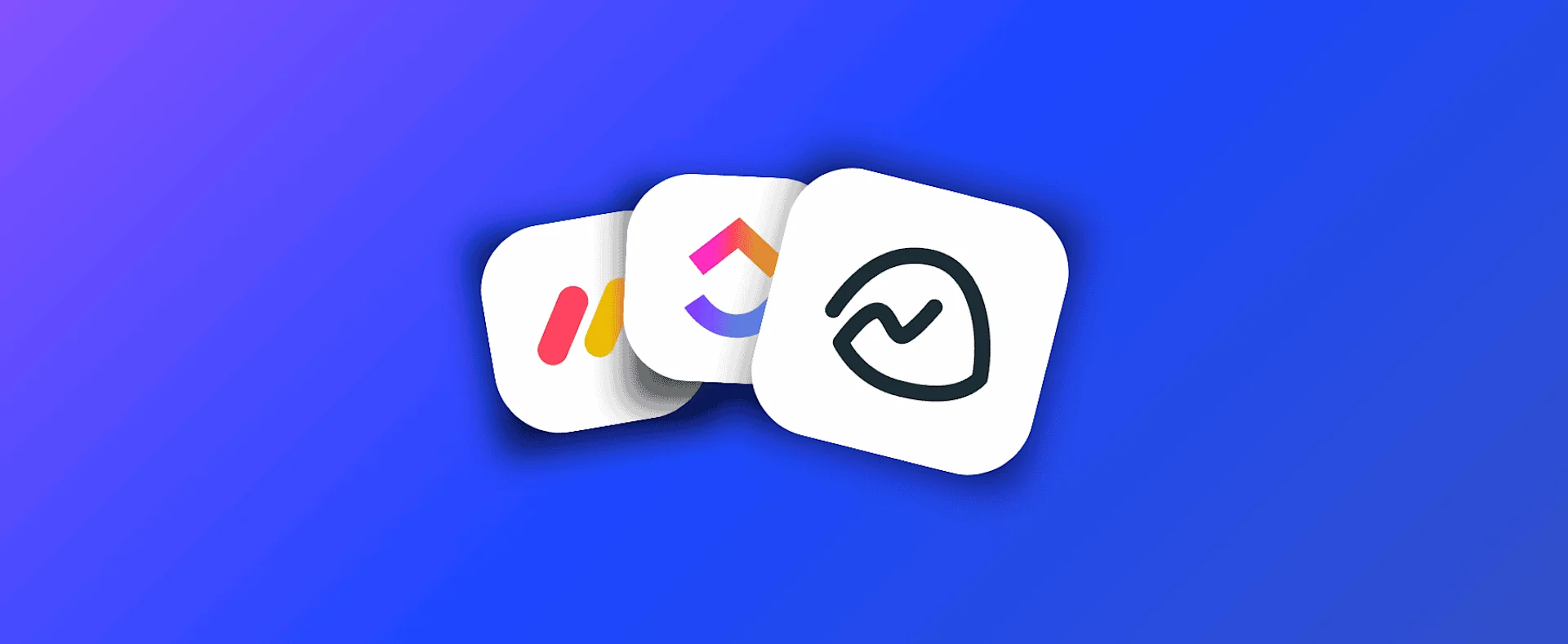
Your team wants to know the best project management software to use as we head into 2025. Project management software comes in many shapes and sizes, let's explore which one is the best project management software for your team.
Project management software can level a team's productivity, aligning you all on goals and visions.
Chances are you have tried some and keep trying to find the perfect fit. One of the big unlocks can be getting your team on the same page and with the same vision. But sifting through, researching, and finding a tool to fit everyone's needs can be more complicated than it looks for team members hunting for one base to manage team projects. Politics, features, and pricing all come into play when exploring the best solutions.
What is a project management software?
Project management software is a tool that aligns team collaboration in one place, allowing team members to coordinate deadlines and assign tasks to others. They can come in many shapes and sizes, being used by small to medium-sized teams to large enterprise teams of 500+.
Best Project Management Software for 2025
Our top recommendations to help you and your team:
1. monday.com
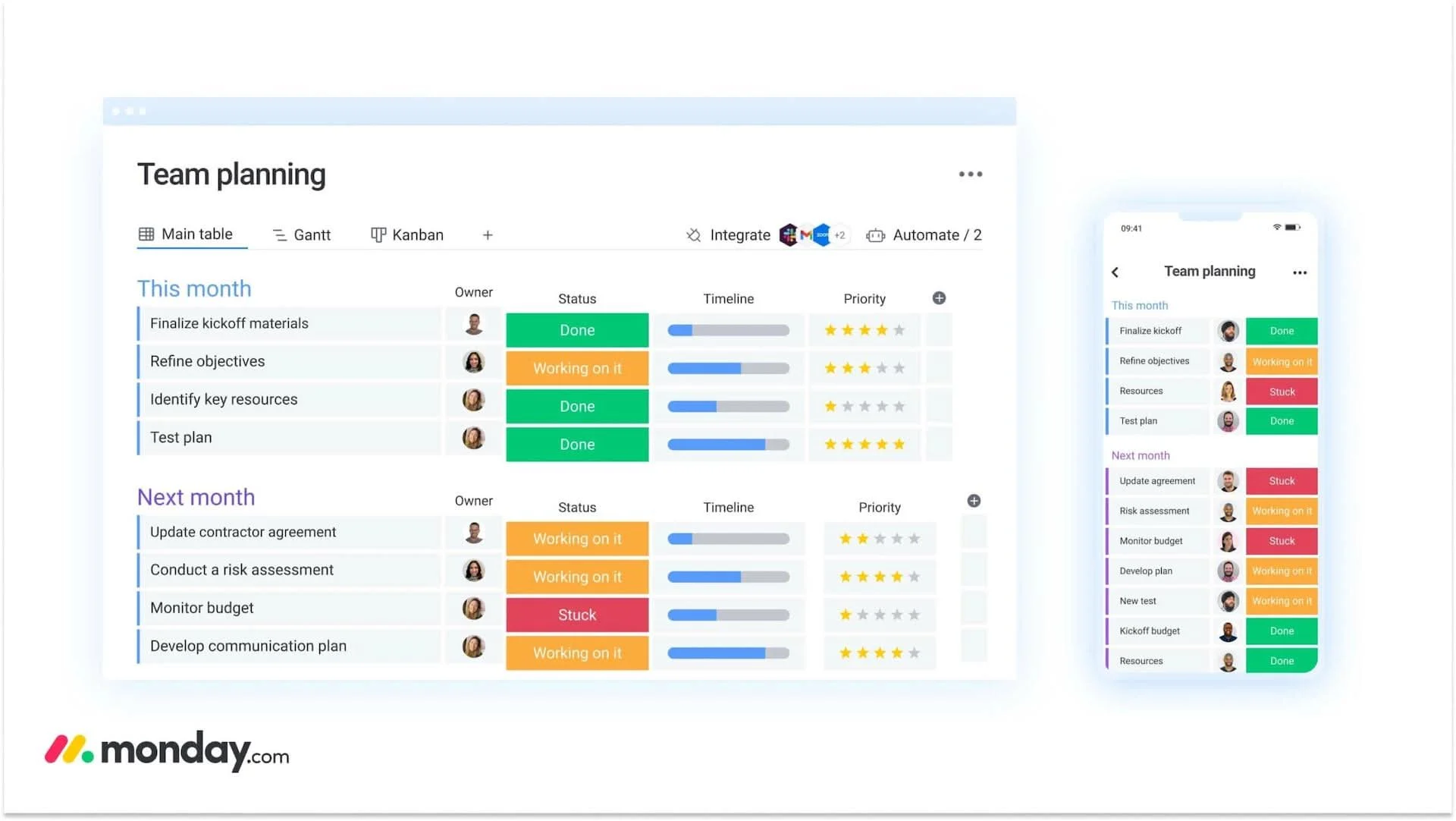
monday.com is one of the more structured yet flexible tools for project management.
Over the years, it has become one of the most successful project management tools for all-round use. When we say all-round use, it works as an excellent base for projects for everyone in a range of departments, meaning you won't get a sense of specialism unless you buy into monday.com's work offerings, which are designed for Sales CRM pipelines (called monday.com Sales CRM), marketing teams and development teams.
There are a fair number of features on monday.com, making it immediately difficult to learn but not as tricky to adopt as tools like Notion or Smartsuite. Special features in monday.com include the dashboard, which allows your team to express data, team project progress, or insights in a flexible place and see real-time updates.
Finally, we love the experience automation feature (above) that allowed you to create recurring actions on tasks that you and your team do every day that just waste time, like moving status and nudging someone after each time, that could be automated. monday.com is the best all-rounder on our list. It provides most teams with 80-90% of what they need. It is not specialist software like Gantt chart software, but rather a solid, reliable, all-around experience that most teams will get on with.
Pros:
- Easy to use
- Comes with flexible & structure
- Built for small & large teams
- Pre-built spaces for CRMs & more
Cons:
- Can take time to learn
- Not always the best fit for teams
2. Basecamp
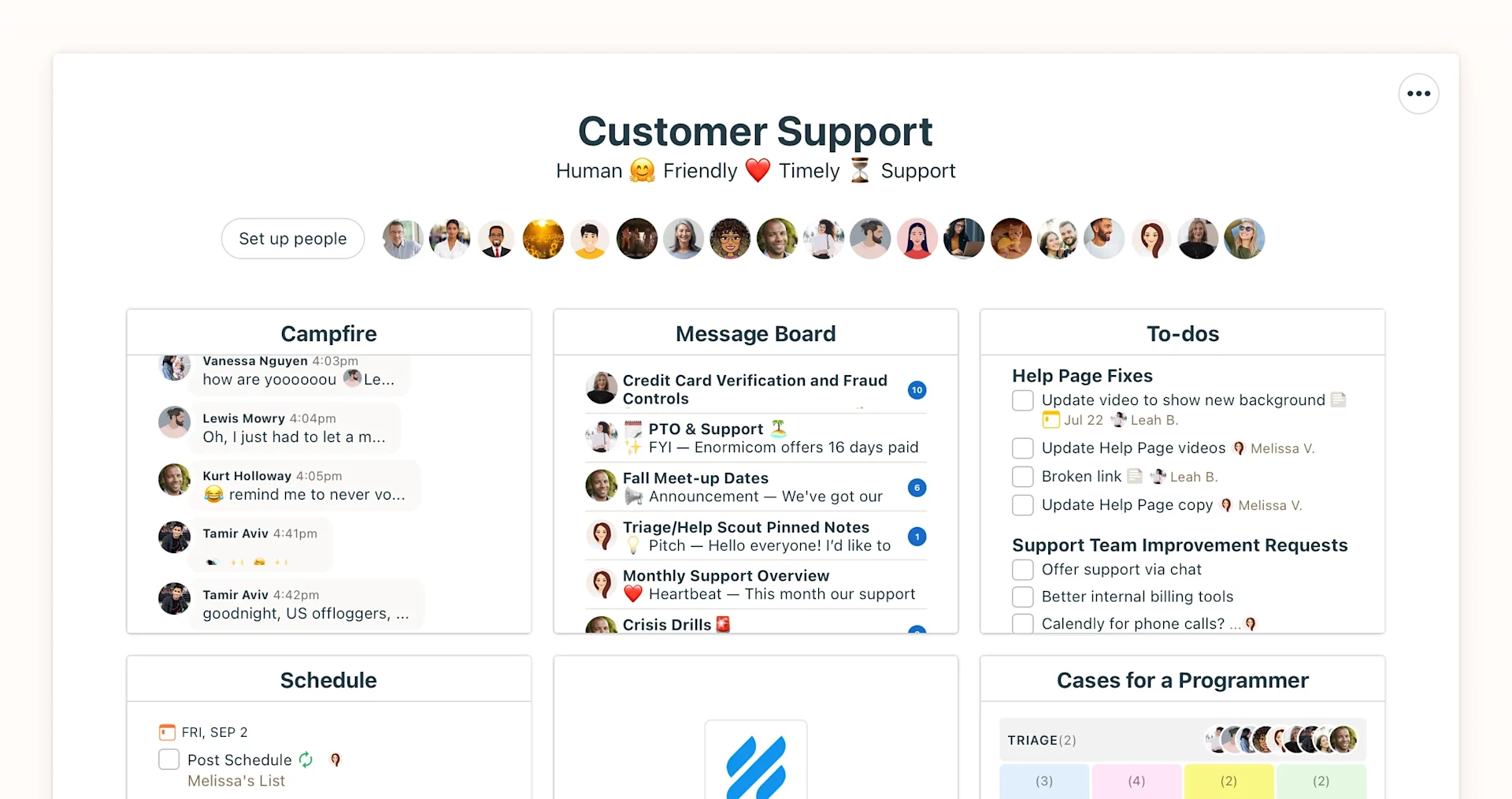
Basecamp is developed by 37Signals, a company littered with opinion but developers of fantastic applications, they are the folks behind Hey Email too. Opinion oozes into Basecamp, and you can tell from day one when you land on their site. They want to be the hub for your team that defies standard work norms. Their marketing efforts scream no more office, no more micro-management, and no more constant meetings. Basecamp firmly belongs on our list for creating an opinionated, quality product.
Basecamp isn't much like other project management applications. It doesn't offer real-time insights like monday.com, it presents you with a more fixed view to your work allowing your team to more on work, then on project management, if that makes sense. Let us explain how and what we mean by that in these features that make Basecamp special.
This is a radical project management application. It defines the nature of project management software but for teams serious about moving to a fully remote, a-sync world. This is going to be a serious contender to look at as Basecamp continues to break boundaries in this area and embrace the way of working that many teams are moving to. Strangely, views regarding a-sync workload are massively important, and Basecamp proves this. However, each project can have "apps" as part of it, meaning you can build a project to your needs every single time. This is similar to the interplay that ClickUp has with ClickApps.
3. Wrike
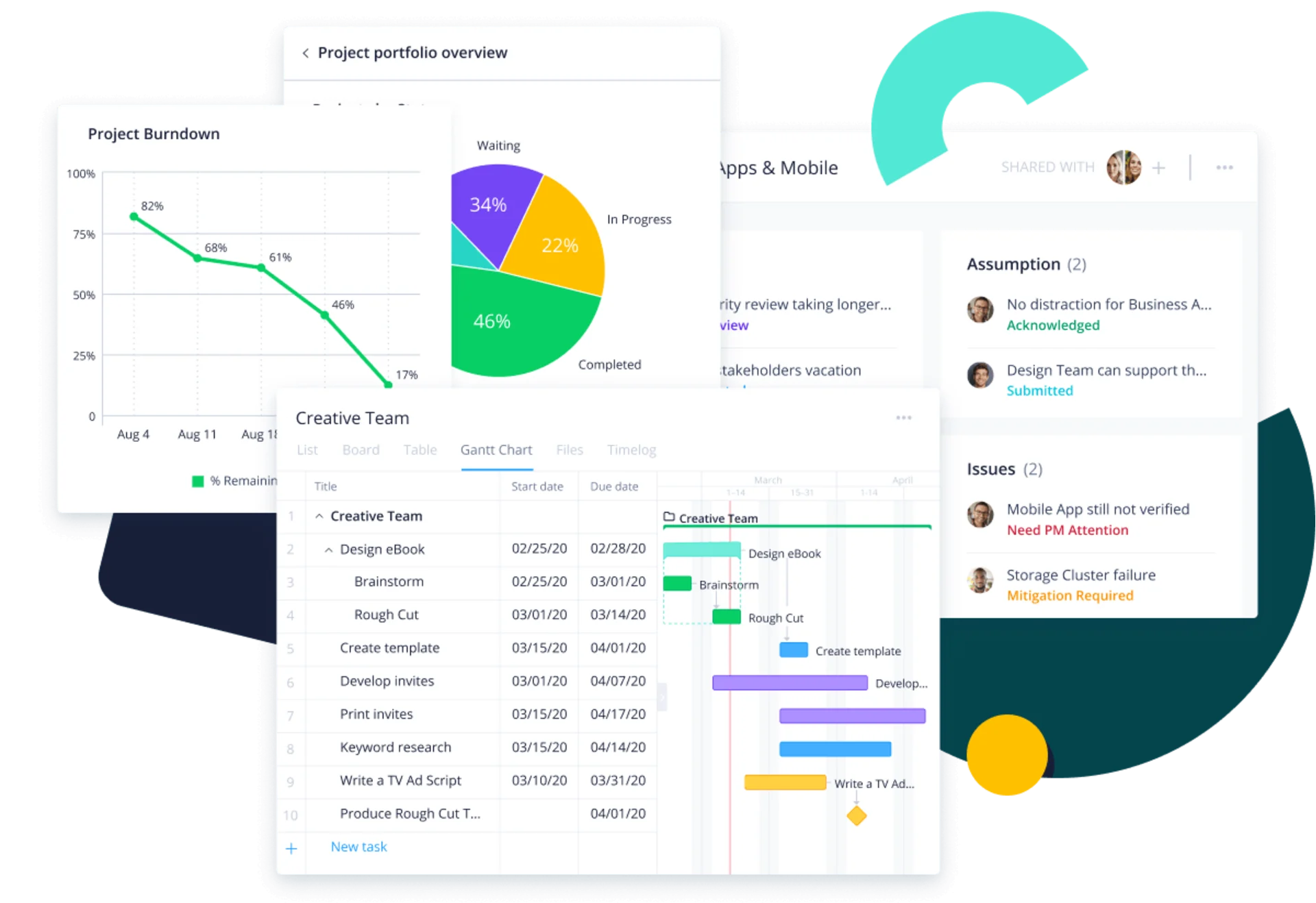
Wrike is a long-standing project management tool, which doesn't mean it just gets included for its age.
They have continued to produce reliable and stable project management software that is super popular with marketing teams and managers. Wrike offers great ways for marketers to proof images, provide approvals, and even file approvals, which makes it a gem for marketing agencies with client-facing workloads. Another reason we noted it in this list is its acquisition by larger company Citrix Systems. This could continue stabilizing Wrike; you can tell they are paying into their investment. It helps to give those exploring it more peace of mind.
Calling it just a marketing agency project management software is a lie. It expands beyond that and provides super views, grade-A management of comments and discussions, and even a more traditional feel that you'll get with tools like monday.com and ClickUp.
Also, Wrike offers "add-on" plans that enhance the experience and are worth considering. For marketing teams, there's something called "Marketing Insights," which provides better insight into the data they add to Wrike.
Pros:
- Easy to use
- Good all-round use
- Developed by Citrix
- Expands beyond marketing & sales
Cons:
- Not as attractive as others
4. Asana
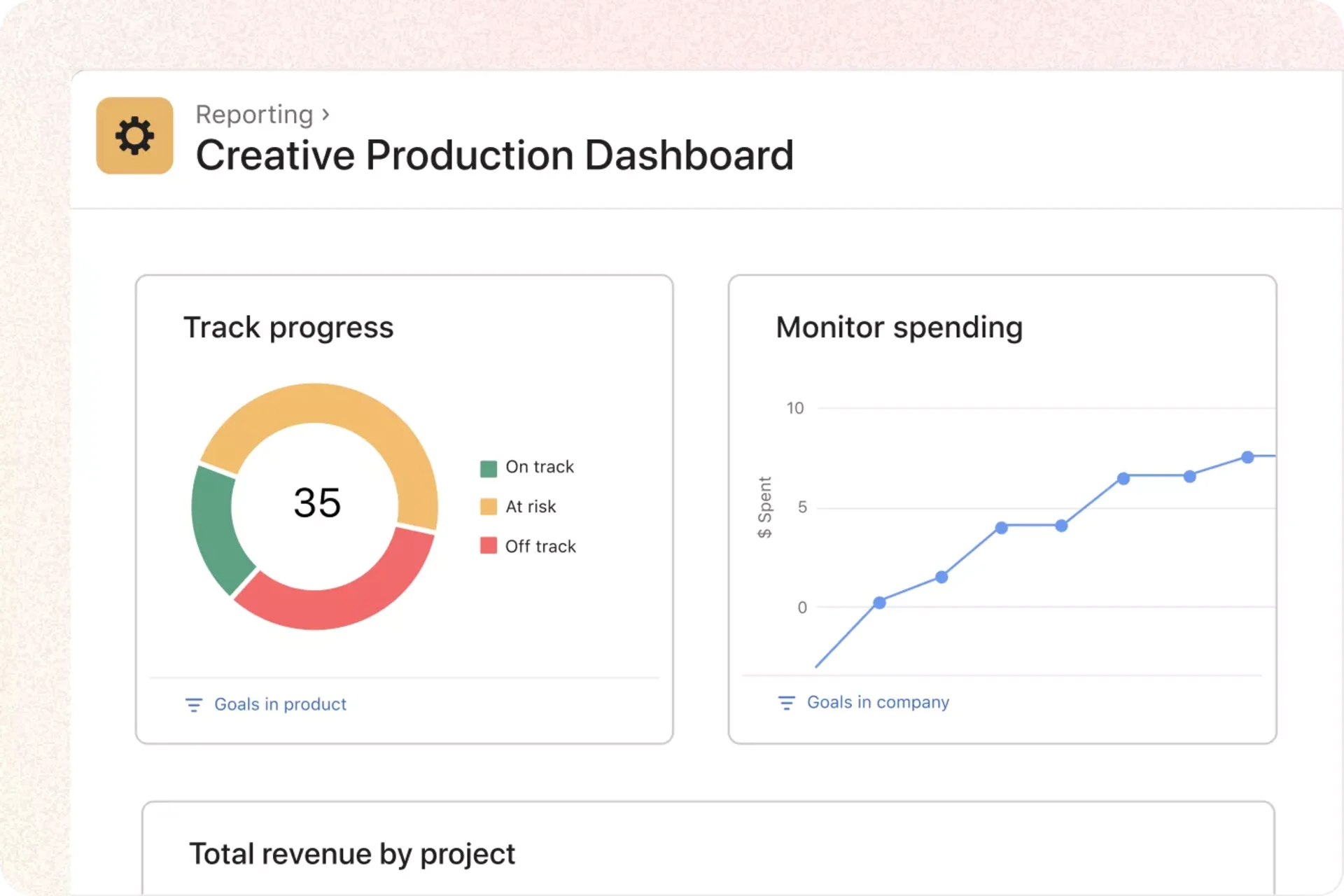
Asana is one of the best tools for managing projects.
They've been doing this for some time, and you can tell. Asana brings an aesthetic, beautiful experience that lures product management and design-based teams in. But it isn't just product management teams that will love Asana - it works in many different situations. For marketing teams with their timeline feature, for IT teams with their reports function, and for general teams with their workflow builder feature,
With a long history in project management, Asana is one of the best solutions for a wide range of use cases. It presents a well-rounded experience that doesn't require as much education as other tools like Wrike, ClickUp, and more. Asana is popular with teams in product management, IT, and operations. The design of Asana is one of the best in the world and offers a clean feel to the application.
It would again be a crime to restrict Asana to those industries because it is such an approachable application for those who want simple yet powerful project management software.
Pros:
- Easy to use
- Fun & playful nature
- Developed by a credible team
- Well-known providers
Cons:
- Might not be for everyone
5. Trello
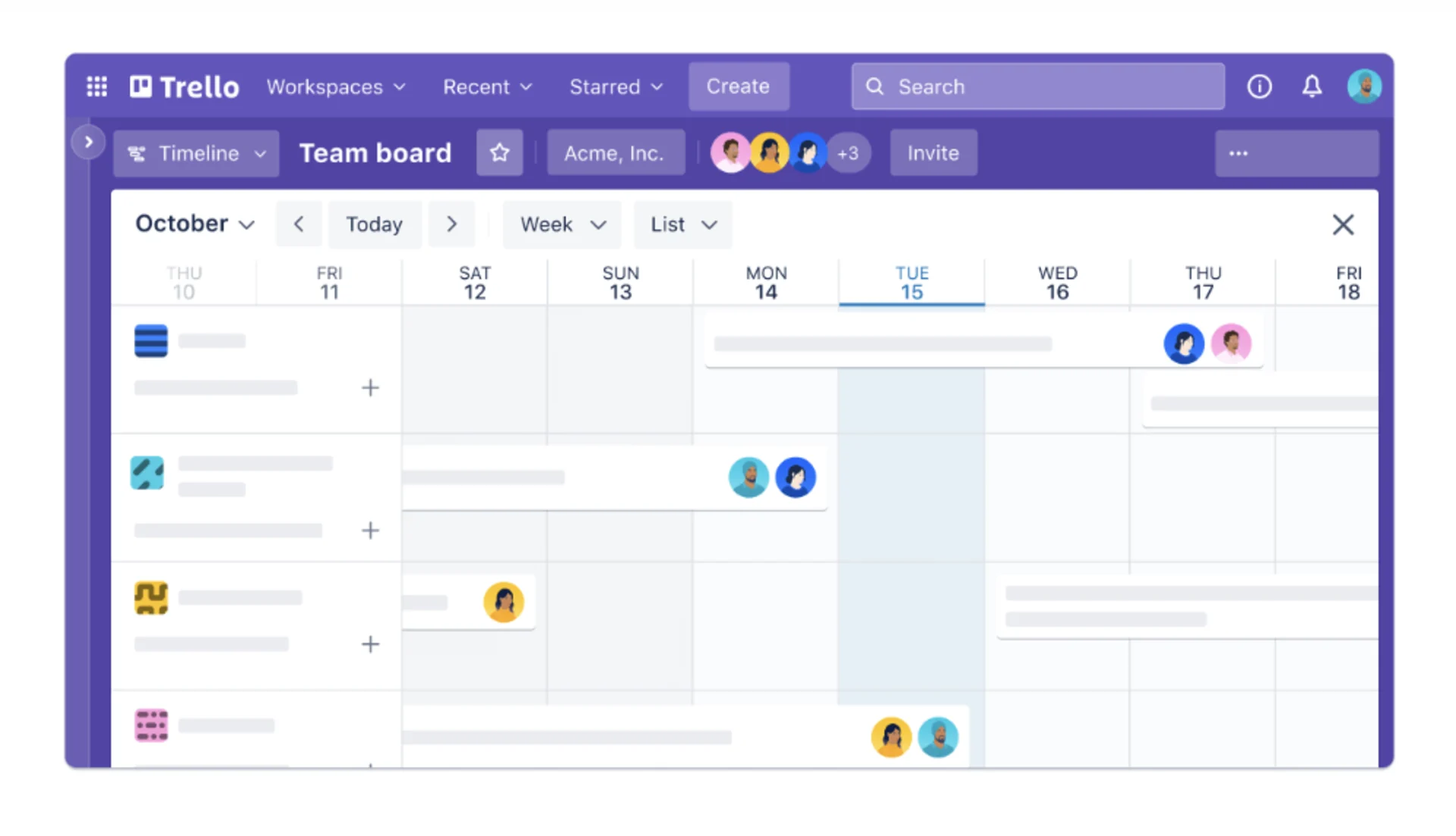
Since Atlassian acquired Trello, it has been on the warpath to add more views, build better infrastructure, and grow the project management software to new heights. Since the last major time many people considered Trello, they've added a timeline, dashboard, and map view, which give you a much better expression of your projects and tasks.
Add to this the growing abilities of "power-ups," which are Trello plugins that can connect with tools like voting, repeating cards, integrations like Google Drive, InVision, and Jira—and so much more—making the marketplace for Trello plugins a great place to extend your use of Trello for each of the workspaces you create. The plugins have grown over time, making Trello accessible to many people thanks to the Trello developer platform, which has built more plugins for each scenario.
Trello is great for a team between say 20-50 that want something practical, reliable and easy to teach, thanks to the nature of Trello it works like Asana where there isn't much education needed to get started with managing projects and tasks from day one.
6. ClickUp
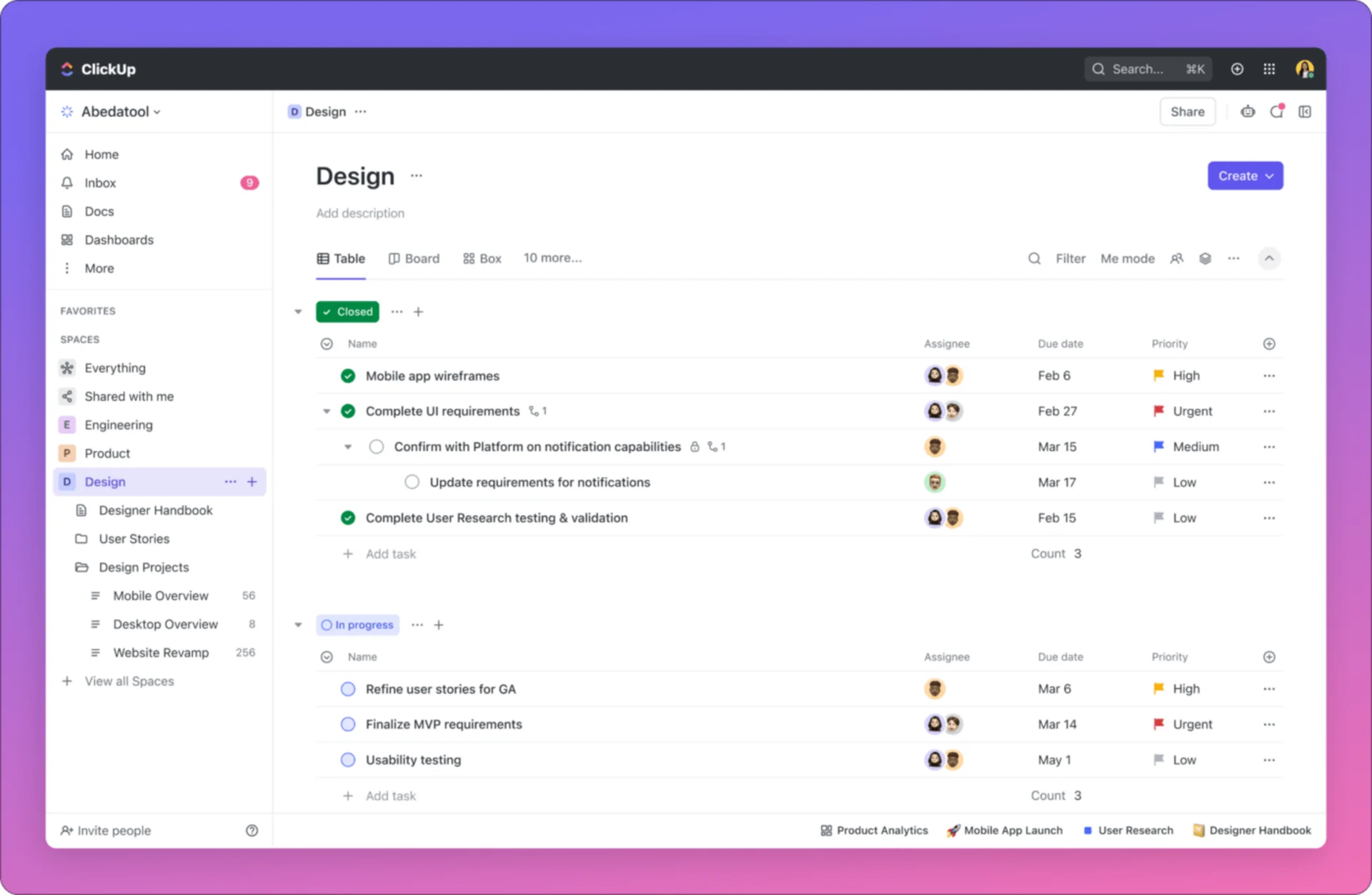
ClickUp is talked about so much, and it is likely even before landing, you know what it is and how it wants to be everything. This is very much true. ClickUp wants to be the everything project management software, and it does this by providing users with hundreds of features. for many people, that can be quite overwhelming, but for others, that makes ClickUp their powerhouse tool for managing everything without leaving ClickUp.
Think of ClickUp as the Everything project management application. If you're on the hunt for something super flexible and willing to learn the tricks of the trade, ClickUp can offer you an enhanced experience above tools like monday.com by offering whiteboards and chat that adds less context-switching for your team as they use work across their days.
ClickUp is a great all-rounder, but there will be a lot to absorb for new team members getting used to the software - they still offer great templates to save time, however.
7. Smartsuite
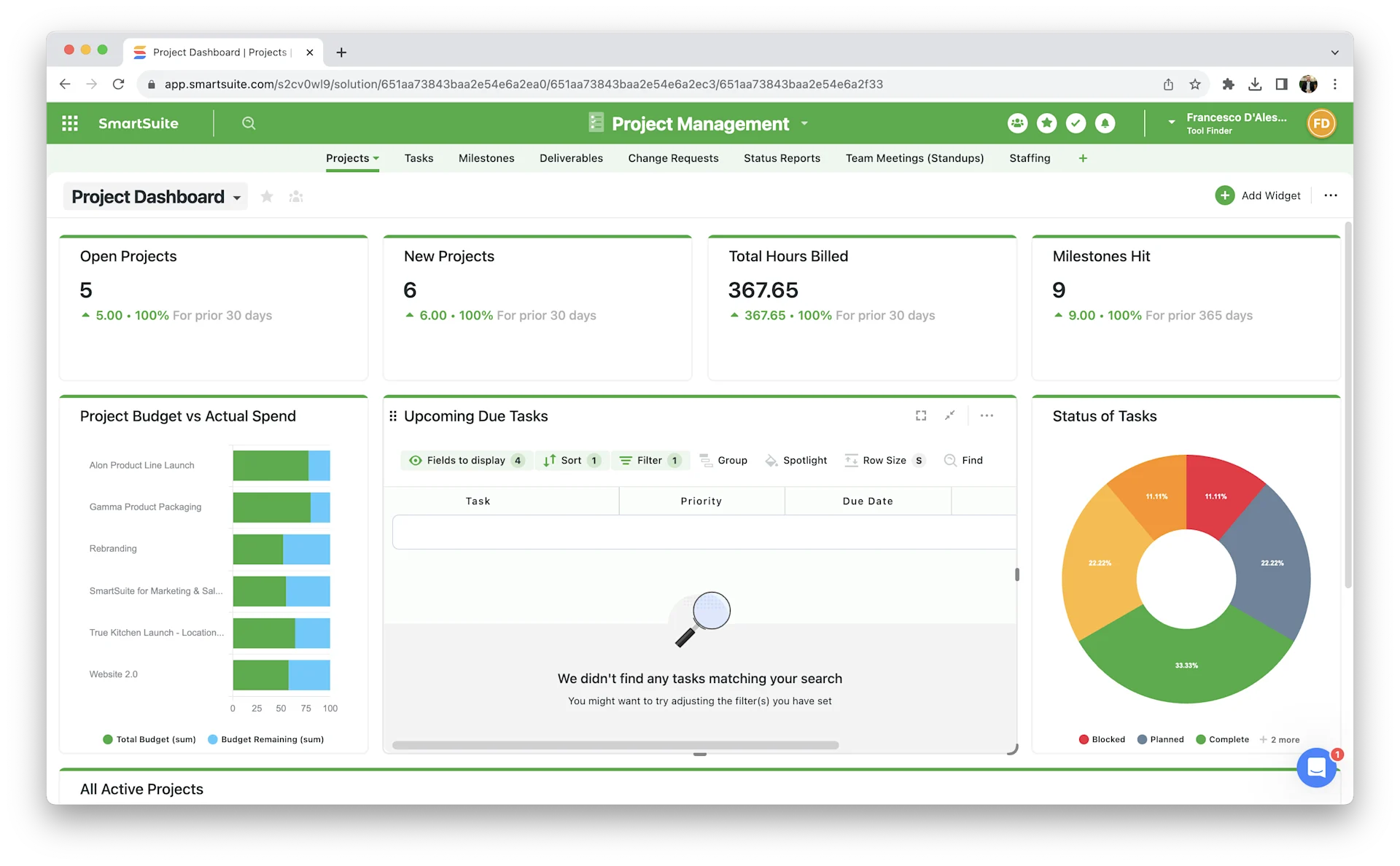
According to their website, SmartSuite is used by 5,000 businesses worldwide and are very much the most recent of the software on this list in terms of project management. They are making a name for themselves by offering a very flexible experience that resembles if Airtable and monday.com had a child, a combination of project management and record management in which Airtable currently is the market leader.
As a base for managing projects, tasks, schedules, milestones, timelines, reportings, forms and more - SmartSuite had packed in a lot of features into their core experience and name these areas you create solutions. Solutions provide you with a workspace for each focus.
To be honest, SmartSuite is a strange breed. The range of views and features is amazing but the records can limit you. It is sort of like having an all-you-can-eat buffer with a range of cuisines, but there a limit to how many items you can have per cuisine.
8. Coda
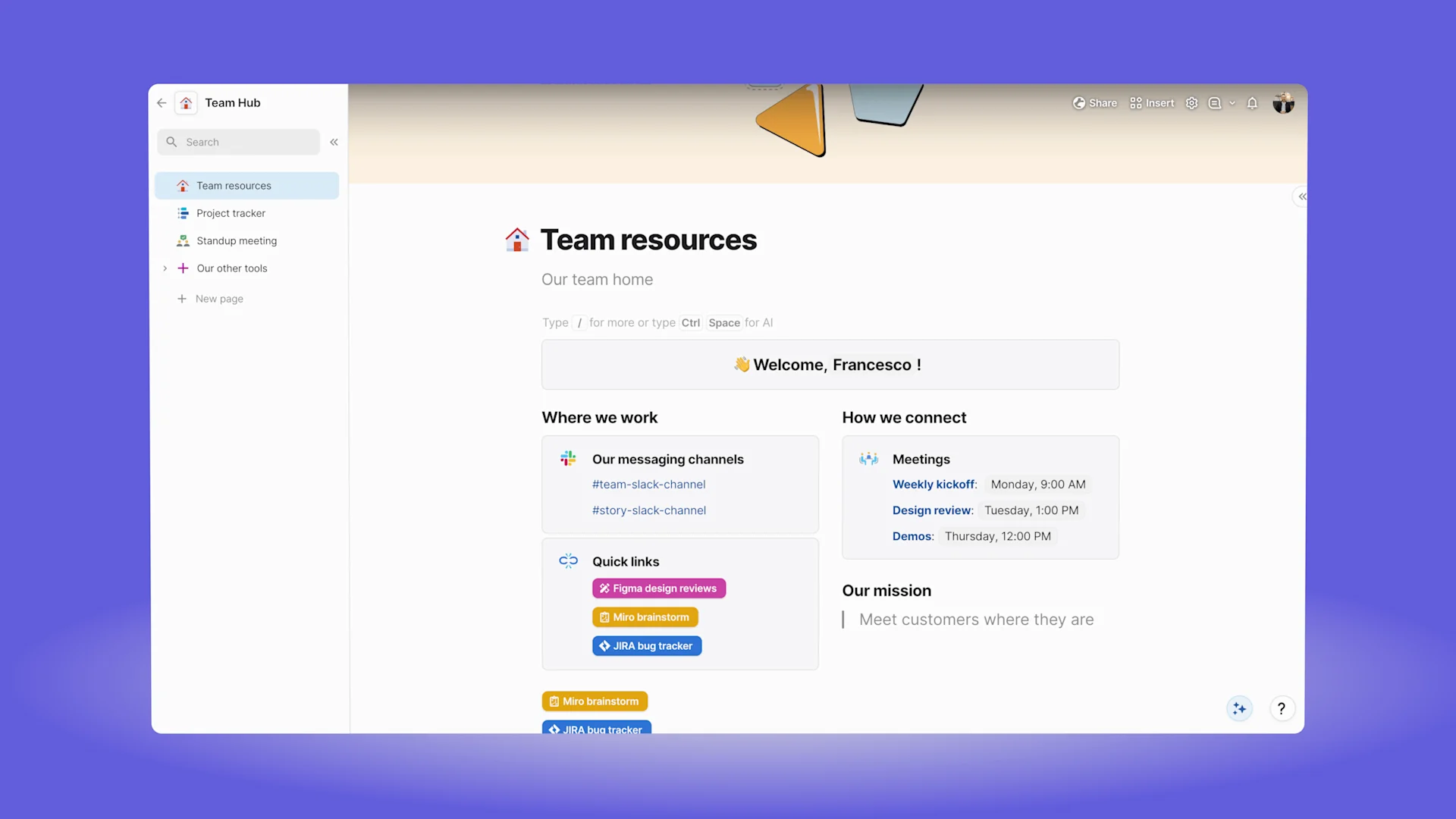
Coda is one of the most underrated project management software options. Collaborative documents don't seem like much, but the powers inside of Coda are crazy and, more recently, being enhanced by AI technologies, which can only mean one thing: more robust information for you and your team.
Think of Coda as a live document that you and your team build documents into projects into task management lists into anything you want. The canvas is expansive and you choose what you do with that. Each document has a way to add micro applications within it to visualize better projects, items, records, tasks & more.
One of the most powerful features of the Coda is formulas and packs. Formulas are a great starting point, each little micro app you build within Coda workspaces, you can setup formulas to help enhance them - these are little automations that can do jobs for you or narrow down filtering too. You can then use packs to enhance them externally by connecting Coda's wide array of integrations.
Coda is probably best for those who use Google Docs, spreadsheets or trying to hack a system together with several applications. The best way to think of Coda is a "no-code document builder' allowing your team a wide range of possibilities to create the workspace of their dreams, and with one of the best template galleries we've ever seen, that'll save.
9. Smartsheet
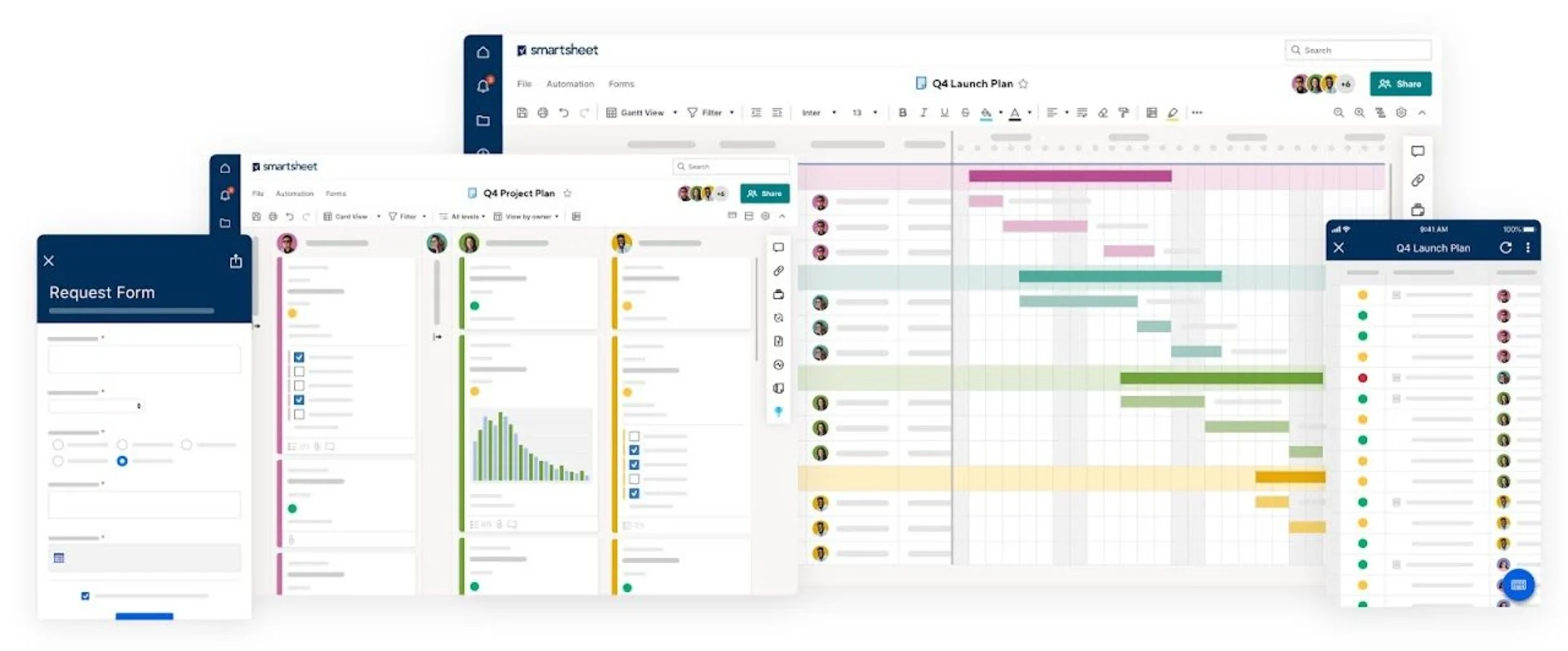
Smartsheet, we didn't just include it because it is a McLaren F1 sponsor as of 2023.
However, according to their website, it is used by 90% of the Fortune 100 companies. Primarily because Smartsheet is a reliable and easy-to-use project management platform, it is sort of if Wrike and monday.com had a baby, a blend between the two in features and looks.
Smartsheet is probably much more suitable as a scalable team that is growing beyond 100 people and are looking for much more in-depth functionality with their project view customisation. Smartsheet is like traditional Microsoft Excel but on fire.
10. Notion
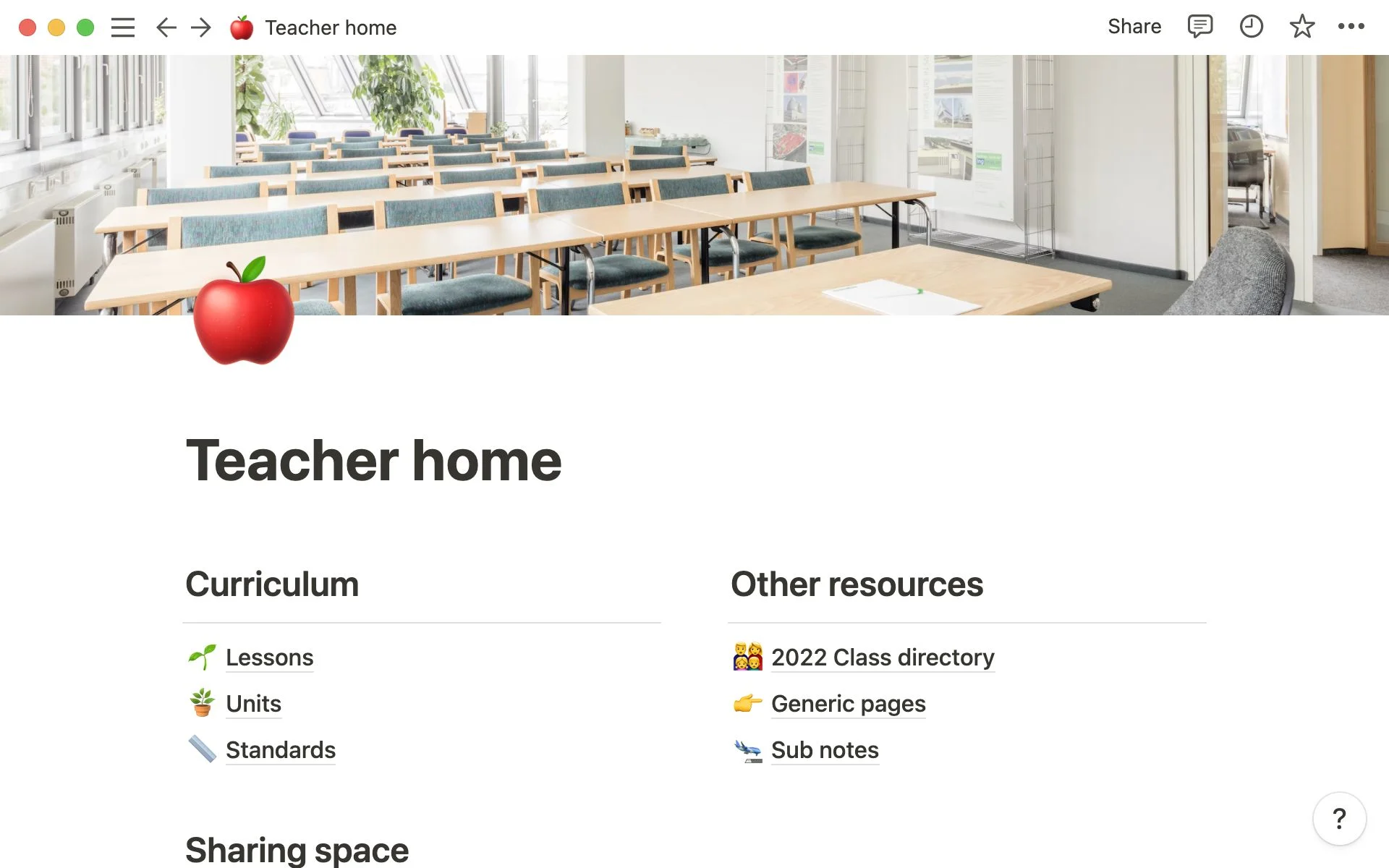
Notion Projects are pre-built templates with databases that can be applied to a range of situations like sprint management, tasks, projects and internal wiki and knowledge management. Notion has long been known for wiki based management along with management of databases but now they want to cater with these pre-made places.
Notion Projects and Notion as a whole are super for those who want a custom-build to their project management experience so those who are more hands-on. But if you find that person in your team, Notion becomes a super weapon for customising it to how you and your team use the experience. Education with Notion is very helpful, so check out "Tiny Teams" by top Notion builder and team management expert Marie Poulin to unlock Notion for your team. AI-based, and manage team knowledge isn't still presents accessing
Notion is the best for those who can handle learning the ways of Notion - things like databases and blocks will take getting used to, but the general flexibility and open-canvas nature does appeal to many teams for handling internal documents alongside projects.
This is very different to more traditional tools like ClickUp and monday.com but presents and approachable, easy to use, and fun-to-learn tool that can be shaped to fit the needs of almost any workspace - as Coda and SmartSuite
monday Dev
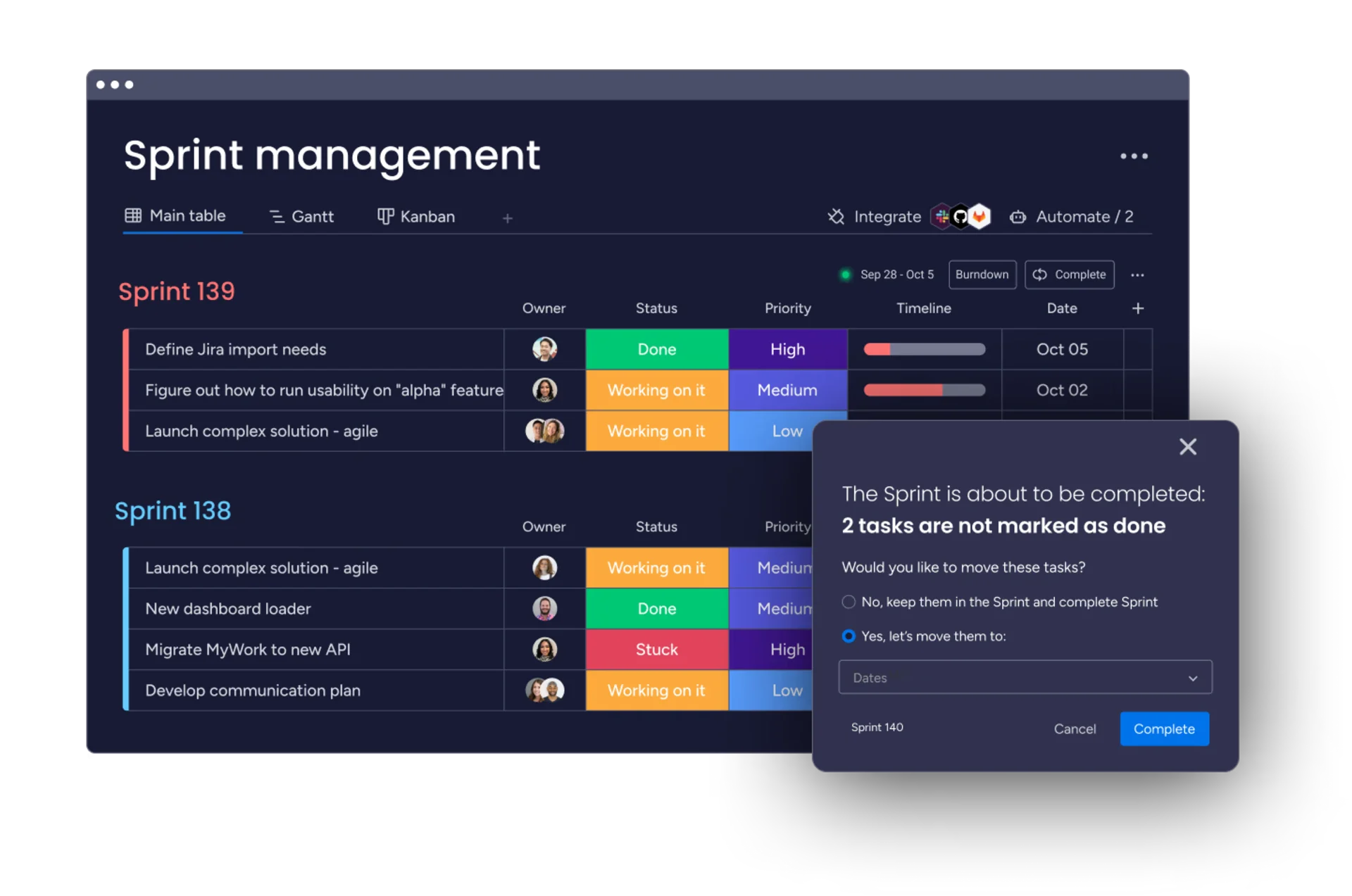
Pros
- Tailored specifically for development teams.
- Offers tools like Scrum sprints, roadmaps, and bug tracking.
- Integrates well with other monday.com workspaces.
- Highly customizable workflows.
Cons
- The basic Dev plan is limited to 3 seats.
- Advanced features require higher-tier plans.
Pricing
- Starts at $10 per user per month for the Basic Dev plan.
- Standard Dev and Pro Dev plans unlock more features.
Jira
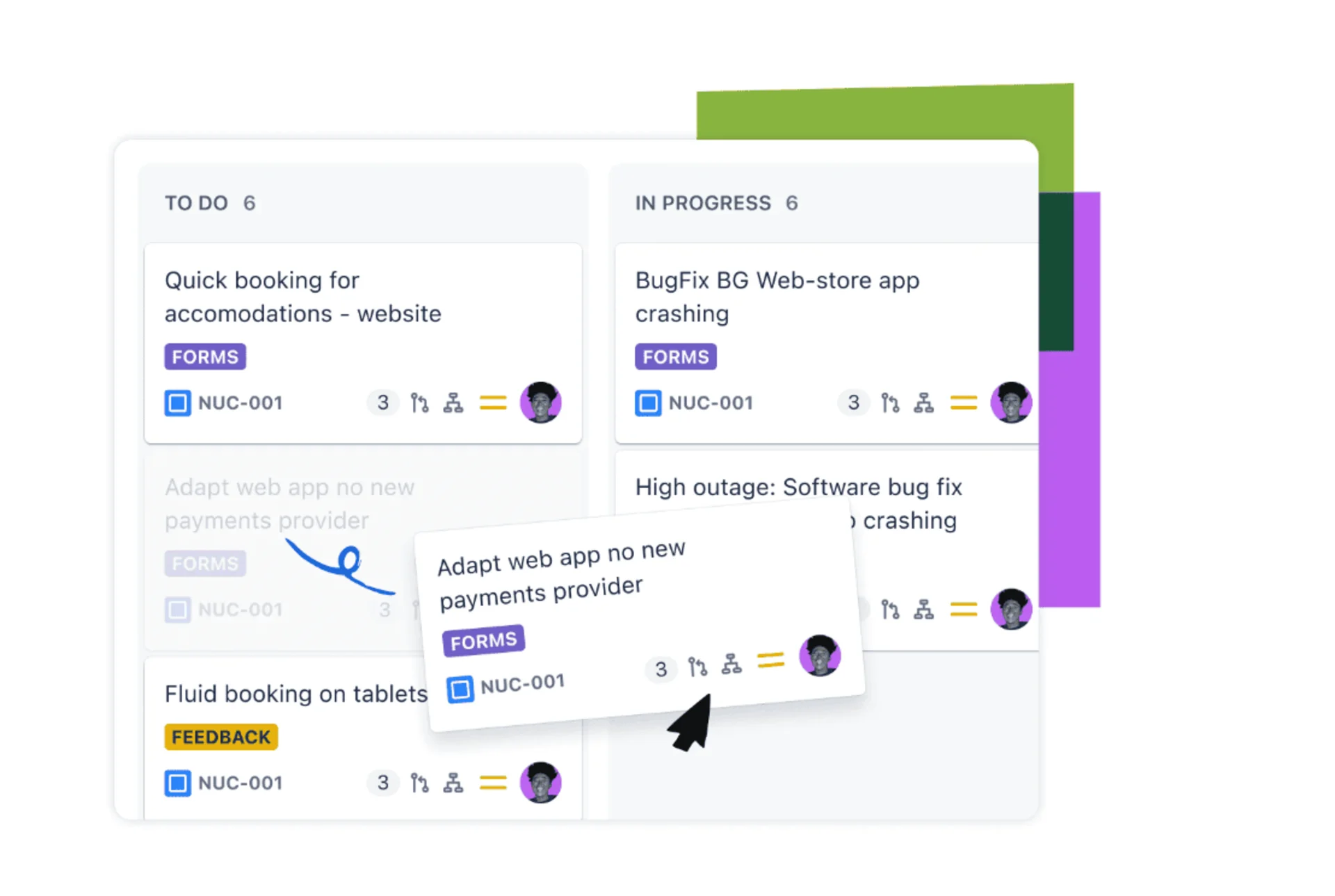
Pros
- Comprehensive tool for issue and project tracking.
- Agile boards (Scrum and Kanban) for flexible project management.
- Advanced reporting and roadmap features.
- Integrates with a wide range of development tools like GitHub.
Cons
- Free plan has some view limitations.
- Premium features like AI require the highest-tier plan.
Pricing
- Free Plan for up to 10 users with unlimited projects, tasks, and forms.
- Standard Plan at $8.15 per user per month.
- Premium Plan at $16 per user per month for additional AI-powered features.
Which project management software shall I pick?
Here's our most precise project management software recommendations folks:
Best For All Round Use
All-rounder, we'd have to say Asana. It presents a great traditional, modern design layout for your teams projects. If you're looking for more pack in your punch, ClickUp or monday.
Best For Marketing & Sales
Our biggest recommendation is between Wrike and Asana, but here Wrike gives the edge with the abilities tailoring more of those sales and marketing teams. These two are of most all-round project management tools on our list too.
Best For No Code
No code is relatively new, but if you're bold enough to jump in, we'd recommend Notion. It is approachable and you can also use it for personal use too. We'd also say that tools like SmartSuite also meet the requirement with a less canvas-focused feel.
Best For Remote Teams
Finally, the one that is best designed for remote teams, Basecamp. Nice & easy.
What's Next for Project Management Software?
From our years of exploring project management software, there seems to be a new trend every 2-3 years that project management software tends to adopt.
In 2024, we wanted to give you a window into the world of project management trends as software adapts and evolves to meet the needs of the 21st century.
- AI Assistants - Run! Your jobs are being taken! Not quite yet. But AI is seeping into the software we use every single day in an effort to refine our systems, save time and produce a better workspace. One thing to look out for in 2024 is the rise of these AI assistants and how they'll impact small workload items. Anything administrative or repetitive adds constant weight to your team's focus. AI assistants will likely find was to help you research small errands, automate small tasks, refine wordings automatically and keep you more organized in your workspace when days go astray. Look out for AI updates that these project management softwares will introduce in 2024.
- Documents & Projects - The knowledge management trend is continuing where more project management software are gaining ways to capture and manage documents alongside your projects, tasks and work. This is looping back to the "context switching" dilemma where the more times you move between apps, the less productive you are. Project management software wants to solve this and keep you in their software. Maybe even forever as features becoming richer.
These are two trends for project management software to consider as you browse our list of project management software and make your decisions with any to all apps you choose.
What Makes Top Project Management Software?
The best project management software helps your team organize themselves in one base. It provides a range of features and views, helps reduce context-switching, and gives your team much-needed insight into how much progress they are making at work.
- Features & Views - Providing you with a window into your work is key and views help you do that, a project management software with solid views is like allowing your team their best window into what work looks like for them. Favorite views are different for everyone, much like a menu at a restaurant, optionality gives teams choice.
- Context-Switching - One of the biggest issues in work is moving between applications. The best project management applications try to house integrations in one base so that you don't have to jump between them and get distracted.
- Progression - Seeking an instant way to see how your team is progressing is something a project management software should do. A quick glance should indicate where your team is, how they are progressing, and how you can help. Many tools are building better indicators to help teams move forward.
Oops, undefined is still in development...
Weekly Roundup: Explore People's Productivity Tools
Become a reader to our newsletter exploring what productivity apps people use on a daily basis to get things done